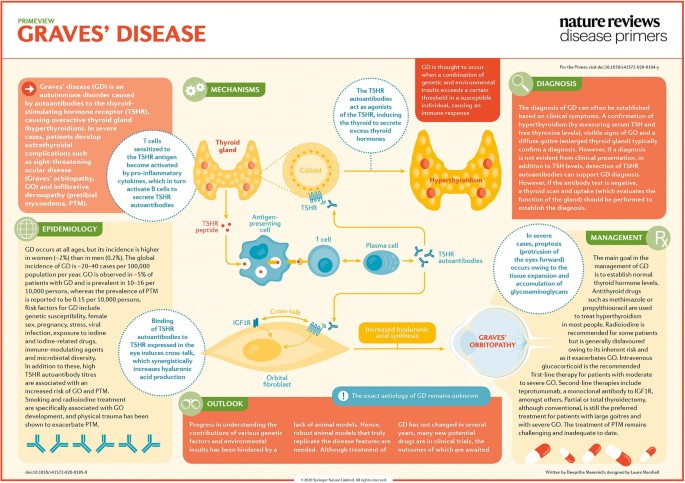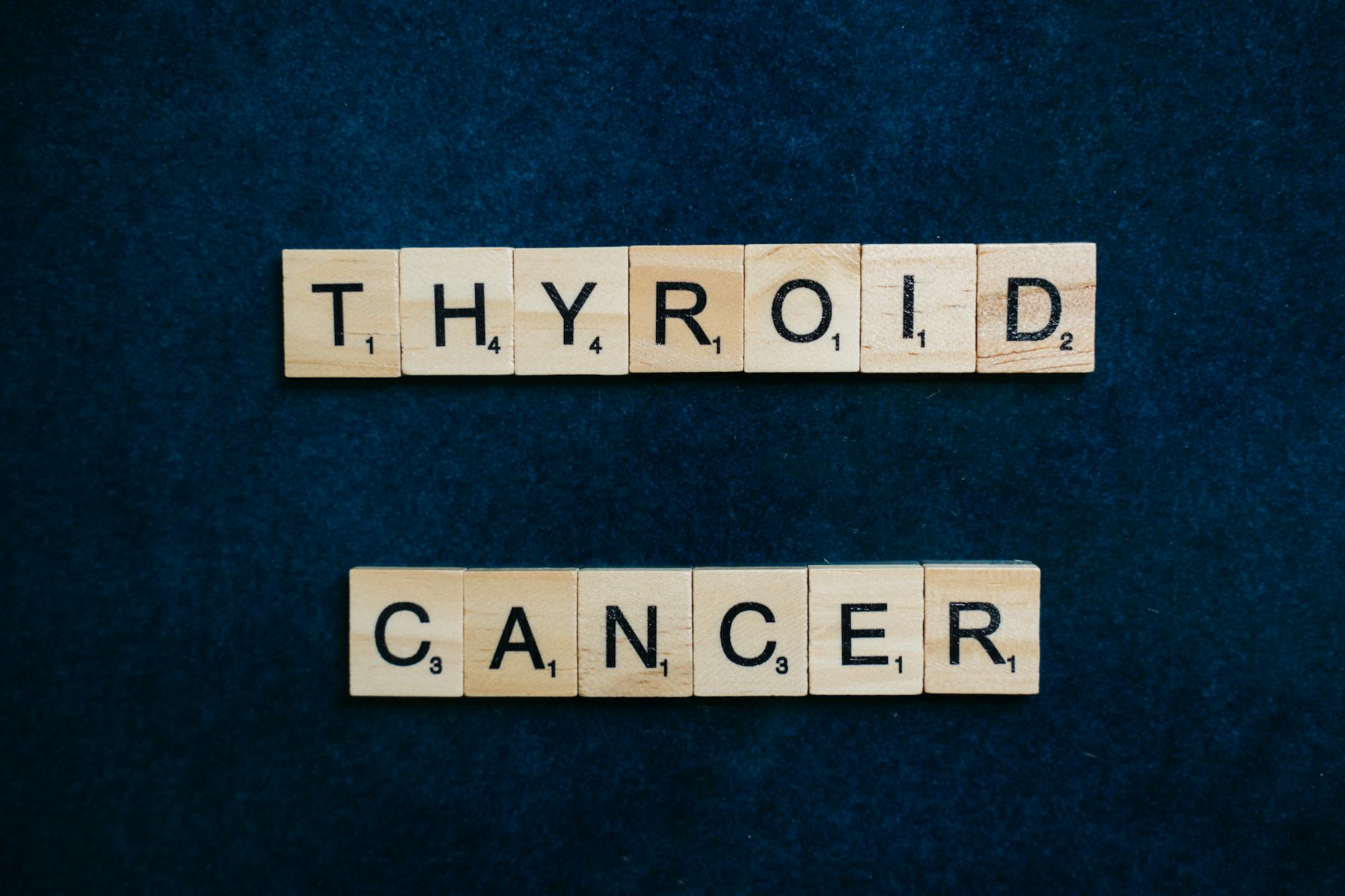Uncover the mysterious origins of Graves Disease with our in-depth exploration of the factors that contribute to its development.
Table of Contents
- Introduction to Graves Disease
- The Thyroid Marvel
- The Mystery of an Autoimmune Disorder
- Why Graves Disease Develops
- Hyper What? Understanding Hyperthyroidism
- Detecting Graves Disease
- Can Graves Disease be Stopped?
- Living with Graves Disease
- Interesting Facts About Graves Disease
- Conclusion
- Frequently Asked Questions (FAQs)
Introduction to Graves Disease
Graves disease is an autoimmune disorder that affects the health of your thyroid gland. But what does that really mean?
What is Graves Disease?
Imagine your body has a manager called the thyroid gland. Its job is to regulate important things like how fast your body uses energy and how it makes proteins. When someone has Graves disease, their thyroid becomes overactive, working too hard and causing all sorts of problems.
Why Talk About Graves Disease?
Understanding Graves disease is crucial because it can impact how our bodies function. By learning more about this condition, we can take better care of our overall health.
The Thyroid Marvel
In your body, there is a superhero at work known as the thyroid gland. This small, butterfly-shaped organ may not wear a cape, but it plays a crucial role in keeping you healthy. Let’s unravel the mystery of the thyroid and how it fits into the amazing system called the endocrine system.
What Does the Thyroid Do?
Your thyroid gland is like a control center, sending important messages to the rest of your body. It releases hormones that regulate your metabolism, helping you use energy from food properly. In simpler terms, the thyroid ensures that your body has the right amount of energy to stay active and healthy.
The Thyroid’s Place in the Endocrine System
Think of the endocrine system as a team of messengers. Each member, like the thyroid, has a specific job to do. The endocrine system produces hormones that act as chemical signals, telling your organs and tissues what to do. So, the thyroid is not just working on its own—it’s part of a bigger group that keeps everything in balance.
The Mystery of an Autoimmune Disorder
An autoimmune disorder is when our body’s defense system, called the immune system, gets confused and starts attacking healthy parts of our body by mistake. It’s like our body thinks it’s fighting off germs, but instead, it’s attacking itself. This can cause a lot of trouble because it makes the body’s own organs not work the way they should.

Image courtesy of www.nature.com via Google Images
Why Graves Disease Develops
Graves disease is an autoimmune disorder that affects the thyroid, but have you ever wondered why it develops in the first place? Let’s take a closer look at the reasons behind the onset of Graves disease.
Possible Triggers
Graves disease can be triggered by a combination of factors. One of the key factors is genetics. This means that if someone in your family has Graves disease, you may be more likely to develop it as well. Additionally, stress can also play a role in triggering Graves disease. High levels of stress can impact your immune system and may contribute to the development of this condition.
When Your Body Confuses Itself
Our immune system is like a defense mechanism that protects us from harmful invaders. However, in the case of autoimmune disorders like Graves disease, our immune system mistakenly attacks our own body tissues. In Graves disease, the immune system targets the thyroid gland, causing it to become overactive and produce an excessive amount of thyroid hormones. This can lead to the symptoms associated with hyperthyroidism.
Hyper What? Understanding Hyperthyroidism
Let’s talk about what happens when your thyroid is overactive. When we talk about an overactive thyroid, we mean a condition called hyperthyroidism. Think of it like a car that’s racing too fast – your thyroid is working extra hard and making too much of certain hormones.

Image courtesy of terrainwellness.com via Google Images
But how do you know if you have a hyperactive thyroid? Well, there are some signs to watch out for. You might feel super energized all the time, like you had five cups of coffee. Your heart might beat faster, and you could feel jumpy or anxious. Some people lose weight without trying and have trouble sleeping. Others might sweat more than usual, even when it’s not hot. If you notice these changes in your body, it might be a sign that your thyroid is working too much.
Detecting Graves Disease
In order to understand if someone has Graves disease, doctors need to perform specific tests to check the functioning of the thyroid gland.
Visiting the Doctor
When you suspect you may have Graves disease, the first step is to visit a doctor. During this visit, the doctor will ask you questions about how you are feeling and any symptoms you may be experiencing. They will also perform a physical examination to check for any physical signs that may indicate an issue with your thyroid.
Tests and More Tests
After the initial examination, the doctor may recommend further tests to get a closer look at how your thyroid is functioning. One common test is a blood test to check hormone levels in your body, including thyroid hormones. Another test that may be done is a thyroid ultrasound to look at the size and shape of your thyroid gland. In some cases, a radioactive iodine uptake test may be done to see how your thyroid takes up iodine, a crucial element for thyroid hormone production.
Can Graves Disease be Stopped?
Graves disease is a condition that can cause a lot of trouble in your body, especially with your thyroid. But can we do anything to prevent it or make it go away? Let’s take a closer look at how we can take care of our thyroid to possibly stop Graves disease.
| Factors | Explanation |
|---|---|
| Genetics | Family history plays a role in developing Graves’ disease. It is more common in individuals with a family member who has the condition. |
| Autoimmune Response | The immune system mistakenly attacks the thyroid gland, leading to inflammation and overproduction of thyroid hormones. |
| Gender | Graves’ disease is more common in women than in men. |
| Stress | High levels of stress can trigger or worsen Graves’ disease symptoms. |
| Environmental Factors | Exposure to certain viruses or bacteria may play a role in the development of Graves’ disease. |

Image courtesy of thyroidpatients.ca via Google Images
Prevention and Care
One way to possibly avoid Graves disease is by taking good care of your thyroid. Eating healthy foods, getting enough sleep, and managing stress are all important ways to keep your thyroid happy. Sometimes, making small changes in our lifestyle can make a big difference in keeping our thyroid healthy.
Treatments for Graves Disease
If someone already has Graves disease, there are treatments that can help make it better. Doctors might prescribe medications to help balance the hormones in the body, or they may suggest therapies to control the thyroid function. In some cases, procedures or surgeries might be necessary to treat Graves disease effectively. By working closely with your healthcare team, you can find the best treatment plan for managing Graves disease.
Living with Graves Disease
Living with Graves disease can be challenging, but understanding how to manage its effects is essential for those affected by this autoimmune disorder that disrupts thyroid health.
Everyday Changes
People with Graves disease may need to make small adjustments in their daily routines to stay healthy. Maintaining a balanced diet, getting regular exercise, and ensuring proper rest are crucial aspects of managing the condition. Additionally, taking medications as prescribed by a doctor and attending regular check-ups to monitor thyroid function are important parts of living with Graves disease.
Support and Understanding
Having a solid support system is vital for individuals facing the challenges of Graves disease. Family and friends can offer emotional support, help with daily tasks during periods of fatigue, and provide encouragement during difficult times. Educating loved ones about the condition can foster a greater understanding of its impact and encourage empathy and support for those living with Graves disease.
Interesting Facts About Graves Disease
Graves disease is more common in women than in men. In fact, women are up to eight times more likely to develop this condition than men. So, ladies, make sure to keep an eye on your thyroid health!

Image courtesy of www.linkedin.com via Google Images
Did You Know?
One interesting fact about Graves disease is that it was named after the doctor who first described it in 1835, Dr. Robert Graves. That’s right, this condition bears the name of the physician who identified it!
Did You Know?
Another fascinating fact about Graves disease is that it can sometimes run in families. If someone in your family has Graves disease, you might be at a higher risk of developing it too. Family ties can play a role in this autoimmune disorder.
Did You Know?
People with Graves disease might experience a condition called exophthalmos, which causes their eyes to bulge out. This unique symptom is due to the effects of the disease on the tissues around the eyes, giving it a distinctive appearance. It’s like having superhero eyes, but without the ability to see through walls!
So, remember, Graves disease is not just a condition that affects the thyroid and causes hyperthyroidism symptoms. It also comes with some fascinating and surprising facts that make it an intriguing topic to learn about!
Conclusion
In this blog post, we’ve explored the fascinating world of Graves disease, an autoimmune disorder that affects thyroid health. We’ve learned about the thyroid gland, its crucial functions in the endocrine system, and how an overactive thyroid can lead to hyperthyroidism symptoms.
We discussed the mystery of autoimmune disorders, where the body’s defense system mistakenly attacks itself, leading to conditions like Graves disease. By understanding the possible triggers and why the body confuses itself in this way, we can gain insights into how this disorder develops.
Furthermore, we touched on how doctors detect Graves disease through check-ups and various tests to assess thyroid function. We also looked into ways to prevent and manage the symptoms of Graves disease, highlighting the importance of proper care and treatment.
Living with Graves disease may come with challenges, but with everyday changes and unwavering support from loved ones, individuals can navigate through their health journey more confidently. And let’s not forget some interesting facts about Graves disease that shed light on this complex condition.
As we conclude this exploration, it’s essential to remember the impact of Graves disease on thyroid health and the broader understanding of autoimmune disorders. By spreading awareness and knowledge, we can better support those affected by Graves disease and strive for a healthier future.
Frequently Asked Questions (FAQs)
What age can you get Graves disease?
Graves disease can occur at any age, but it is most common in people between the ages of 30 and 50. However, children and teenagers can also be affected by this condition. It’s essential to be aware of the symptoms and seek medical attention if you suspect you may have Graves disease.
Can Graves disease go away on its own?
Graves disease typically does not go away on its own. It is a chronic condition that requires medical treatment to manage symptoms and prevent complications. With the appropriate care and treatment, many people with Graves disease can lead healthy and fulfilling lives.





